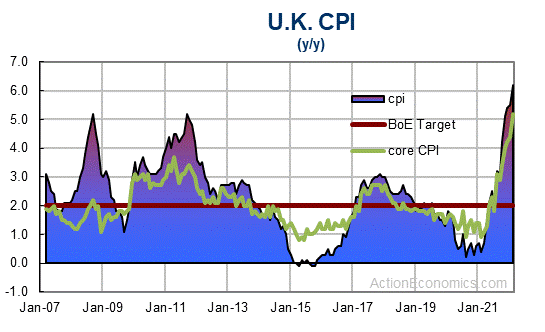New King, new Prime minister, new Government , new Era ….
The BoE had to postpone its rate announcement as the country mourns for Queen Elizabeth, which gave policy makers more time to assess the impact of the government’s energy relief package. This week’s round of data releases still leaves the door open for a 75 bps move next week, although on balance it seems a tad more likely that the bank will stick with a 50 bps hike. At the same time Britain’s new finance minister Kwasi Kwarteng , is eyeing tax cuts which could stoke prices, as the BoE tries to fight inflation.
The pretty disappointing retail sales today added to concern that the cost-of-living crisis and the sharp acceleration in inflation is hurting consumption and the domestic economy. The government has already stepped in with emergency measures to cap annual energy bills for consumers, but that doesn’t address the risk that the UK, as well as the rest of Europe, could face energy shortages and cut offs over the winter.

The bright side however, is employment, with ILO unemployment unexpectedly declining to just 3.6% in the three months to July, leaving the lowest reading since 1974. The total number of workforce jobs in the UK rose markedly, and now exceeds the pre-coronavirus level of December 2019.
Hence, even if the government moves to cap the energy bill now, more wage increases seem likely especially as the breakdown revealed a striking imbalance. There is however a huge difference between the average regular pay growth for the private sector and the public sector. It is the largest difference ever between private and public sector pay on record, which means strike action may become more widespread and catch-up demands are still in the pipeline as the public sector will increasingly struggle to retain staff or recruit employees from the private sector.
There are also some signs that the labor market is close to peaking.
For next week however, considering this week’s data, we are likely to see another split vote and a difficult discussion as policy makers discuss an ever more uncertain outlook. Comments from MPC members suggest that Silvana Tenreyro will probably prefer a quarter point hike, while Catherine Mann is set to vote for a 75 bps hike. On balance it seems likely that the majority of MPC members will back a half point move. Markets have fully priced in such a step, with some chance of a larger hike after the unexpected decline in the jobless rate this week.
Even though for the next week’s meeting, the BoE decision is unlikely to be affected, the new government’s plans could mean that inflation will peak at a lower level than previously thought. In theory this should also help the BoE in its fight against inflation, as it will help to cap the erosion of real disposable income over the near term and keep a lid on wage demands against the background of an increasingly tight labour market.
PM Truss’ plans
The support package for households will limit yearly gas and electricity bills to £2,500 on average, but businesses are still facing a sharp jump in costs from next month after the energy regulator adjusted the price cap. As the FT highlighted, setting up a new scheme for businesses is more complicated in part because it is likely to require legislation. The new government is also set to unveil another package of measures that it hopes will boost growth. The focus here will be on scrapping the planned increase in corporation tax alongside a post-Brexit deregulatory push. There is also a plan to ditch the cap on bank bonuses introduced by the EU in 2014. This is hoped to boost the City’s attraction as a financial center, but whether those measures will indeed boost growth sufficiently to help the government reduce the growing debt mountain remains to be seen.
There is also the risk that the plans will actually boost the medium-term inflation outlook. BoE chief economist Pill told lawmakers last week that the government’s price cap would “lower headline inflation relative to what we were forecasting in our August report”. He went on, however, to say: “that very short-term implication on inflation may not be the most important thing for the monetary policy point of view. For the monetary policy point of view it is: What is the implication of the package of measures for inflation at longer horizons? In response to the question, ‘Will fiscal policies generate inflation?’, we are here to ensure that they don’t generate inflation. Our remit is to get inflation back to target”. Clearly this means delivering another hefty rate hike next week.
Click here to access our Economic Calendar
Andria Pichidi
Market Analyst
Disclaimer: This material is provided as a general marketing communication for information purposes only and does not constitute an independent investment research. Nothing in this communication contains, or should be considered as containing, an investment advice or an investment recommendation or a solicitation for the purpose of buying or selling of any financial instrument. All information provided is gathered from reputable sources and any information containing an indication of past performance is not a guarantee or reliable indicator of future performance. Users acknowledge that any investment in Leveraged Products is characterized by a certain degree of uncertainty and that any investment of this nature involves a high level of risk for which the users are solely responsible and liable. We assume no liability for any loss arising from any investment made based on the information provided in this communication. This communication must not be reproduced or further distributed without our prior written permission.

